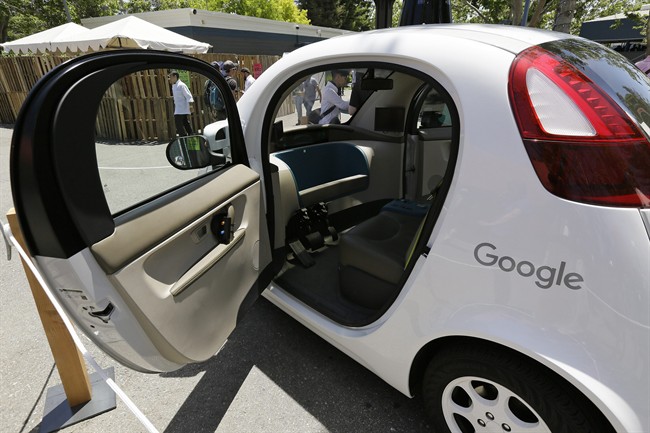On Monday Regina city council voted unanimously to put preparations for autonomous, or self-driving, and electric vehicles, into drive.

Ward 8 City Councillor Mike O’Donnell brought the motion before council.
“It’s related to infrastructure. I wanted to look at what the future may hold for us autonomous vehicles and electric vehicles are going to be the wave of the future, and maybe not far into the future,” O’Donnell said.
“For me the foundation is what are we going to be paying for the size of roads and so on, and if that will be impacted by the change in people’s mobility.”
City administration will now keep track of ongoing research on autonomous vehicles, and bring a report back to council by the second quarter of 2019.
“There is connected vehicle research going on in the U.S. in a number of places, General Motors is looking at putting 30,000 electric autonomous vehicles on the road in 2019,” Coun. O’Donnell said. “So I think we need to be prepared for what connected and what electric and what autonomous means for us in the near future.”
Autonomous vehicles are driverless vehicles that can operate without human interaction. The Canadian Council for Motor Traffic Administrators defines connected vehicles as vehicles that use a variety communication technologies to communicate with the driver, other cars on the road and the connected infrastructure.

Get daily National news
O’Donnell said he would also like to see Regina become a testing area for self-driving cars. Something other cities, like Calgary are pushing for.
READ MORE: Could Calgary soon see driverless vehicles tested on city streets?
Saskatoon city council is also preparing for when autonomous vehicles hit the streets. Ontario was the first jurisdiction in Canada to allow autonomous vehicle testing on their roads in 2016.
Recently, the Manitoba government announced they are working on legislation to allow autonomous vehicle testing on provincial highways.
However, SGI officials say there is still a lot of work that needs to be done before you see autonomous vehicles on Saskatchewan roads.
“There are a number of implications for SGI and other motor-traffic administrators when it comes to the eventuality of self-driving vehicles,” SGI Media Relations Manager Tyler McMurchy said. “Things like liability and insurance, driver licensing, driver education and of course safety is our number one concern.”
McMurchy added that autonomous vehicles will have a significant impact on road infrastructure, including potential changes to lane markings, traffic signals and mapping.
SGI participates in a national group through the Canadian Council of Motor Traffic Administrators (CCMTA) that are studying the autonomous vehicles. In 2016, the CCMTA released a report on autonomous vehicles. Some potential benefits outlines in the report include improved safety and precision, solving fatigue management issues, reducing road collisions as well as economic and environmental impacts.
“The hope is that these will eventually lead to safer roads, because many vehicle collisions, and the injuries and fatalities that result from that, are a result of human error,” McMurchy said.
“How do you license someone to simply be in an autonomous vehicle? Or do you? How do you train somebody to share the road with an autonomous vehicle (or) how does a vehicle manufacturer take into account humans that may be unpredictable? These are all issues that people are dealing with right now as we move toward that future.”








Comments